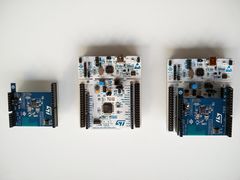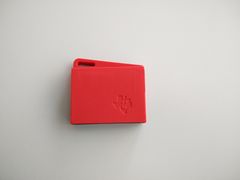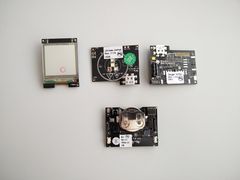Projets-2016-2017-IndoorGeoloc: Difference between revisions
(→Team) |
|||
| Line 65: | Line 65: | ||
* 2 Genuino 101 |
* 2 Genuino 101 |
||
* 2 Intel Quark Microcontroller Dev Kit D2000 |
* 2 Intel Quark Microcontroller Dev Kit D2000 |
||
* Transmitter/Receiver Bluetooth( |
* Transmitter/Receiver Bluetooth (serial port) |
||
<gallery mode="packed-hover" height="180"> |
<gallery mode="packed-hover" height="180"> |
||
Revision as of 10:01, 13 March 2017
Preambule
The Geoloc_Indoor project is handled from years to years by Polytech Students. For the year 2016-2017, the project is handled by Gambro Antoine et Cochinho Louis and directed by Donsez Didier.
Project presentation
Nowadays, geolocalisation has become a wide spread technology. It is used in order to guide a user from a first point A to another point B, naming it can allow users to have routing help during a travel, such as driving trip or even going to a coffee. In this way, geolocalisation is incredibly well spread outdoor, it's in this case that geolocalisation is the most efficient. But, what about indoor geolocalisation ? Because of the use of satellites and GSM networks to locate an object, it is a harder to use it indoor. Buildings prevent signals to enter making impossible to locate things with those means. And this where our project takes place !
Team
This project is directed by Didier Donsez and designed by Antoine Gambro and Louis Cochinho. Both are currently studying in their first year of Polytech master degree. The project is part of the Software Development course.
Progress of the project
Week 1 (January 9th - January 15th)
- Choice of the project
- Getting Nucleo card and shield BLE
Week 2 (January 16th - January 23th)
- Implantation of the existing project
- Getting beacons
Week 3 (January 23th - January 29th)
- bugfix about Android Studio Integration
- Understanding of the existing Java Code
- Installation of the softwares needed to test beacons and others electronic cards
Week 4 (February 6th - February 13th)
- bugfix about Android Studio Integration
- Understanding of the existing Java Code
- Installation of the softwares needed to test beacons and others electronic cards
- Récuperation of the tiles (with 5th year)
- Netbeans Day
Week 5 (February 13th - February 19th)
- Geolocation by GPS
- Study of OpenLevelUP
- Connection tests to Amazon Servers and PostGreSQL database
Week 6 (February 27th - March 5th)
- Class Diagram Back-end
- Global architecture schema
- Class Diagram Front-end
- Preparation for the mid-project presentation
- hardware tests
Summary
Resources
Material
- Android cellphones
- STM32 Nucleo equiped with shield BLE X-NUCLEO-IDB04A1
- 2 sensorTag 1st generation
- 2 sensorTag 2nd generation
- 2 Débug dev pack
- LED audio dev pack
- Watch dev pack
- 2 Genuino 101
- 2 Intel Quark Microcontroller Dev Kit D2000
- Transmitter/Receiver Bluetooth (serial port)
Softwares, API and others
Android App
- Android Studio
- OsmDroid
- Paho (MQTT)
- OpenLevelUp! (?)
- Spring
STM32
- mbed
- BLE_API
- X_NUCLEO_IDB0XA1
Servers
- Amazon Web Services
- PostgreSQL
- Maven
- Spring
- Bean Validation
- Java Persistence
- Jackson
- jSSC (Java Simple Serial Connector)


